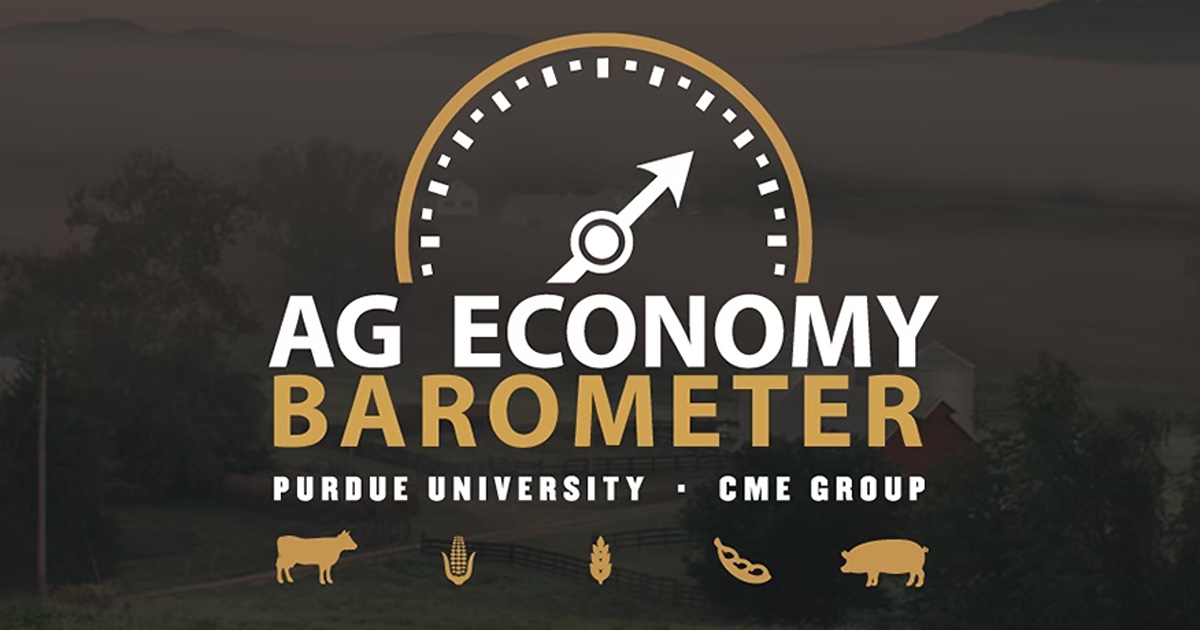College of Agriculture welcomes 10 new faculty members this semester
Andrew Johnston, clinical assistant professor, Entomology
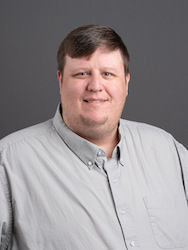
After working as a researcher and collections manager for the National Ecology Observatory Network Biorepository at Arizona State University, Andrew Johnston has joined the Department of Entomology as a clinical assistant professor. Johnston holds a bachelor’s degree in entomology from the University of Delaware and both an M.S. and Ph.D. in evolutionary biology from Arizona State University, where he focused on insect evolution. Johnston is an active member of the entomological collections community, serving on the Entomological Collections Network’s executive board, and as a lifetime member of the Coleopterists Society. His expertise in beetle systematics and biodiversity informatics has shaped his research on insect diversity and distribution. At Purdue University, Johnston will focus on enhancing the understanding and accessibility of insect diversity through taxonomic revisions, species distribution studies and the development of identification resources, which will be used in 4-H entomology programs. He will also identify and provide information on insects submitted by homeowners, commercial growers, state agencies and Extension educators, offering control methods for pest species. Johnston looks forward to collaborating with experts across the College of Agriculture, leveraging his global network of researchers and collections professionals. In his free time, he enjoys camping, exploring landscapes, playing music and board games and collecting insects for both personal enjoyment and research.
Anna Paltseva, clinical assistant professor, Agronomy and Horticulture and Landscape Architecture
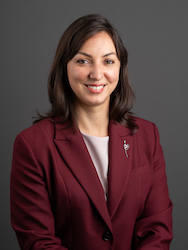
Anna Paltseva has been appointed to the position of clinical assistant professor in both the agronomy department and the horticulture and landscape architecture department. Before joining Purdue University, Paltseva served as an endowed assistant professor at the University of Louisiana at Lafayette, where she established The Delta Urban Soils Laboratory. Holding a Ph.D. and a Master of Philosophy in earth and environmental sciences from The Graduate Center at City University of New York (CUNY) and an advanced certificate in geographic information systems from CUNY Hunter College, her research focuses on urban soil contamination, urban agriculture and the ecosystem services provided by urban green infrastructure. Her recent publication, Urban Soil Guide: a Field and Laboratory Manual, highlights soil testing and makes soil science more accessible to a broader audience. Additionally, her platform, House of Soil, bridges the gap between soil science and regenerative fashion. Passionate about sustainability and global environmental issues, Paltseva aims to establish a global urban soil science program at Purdue that merges scientific research with community-focused applications. Outside of her professional endeavors, she enjoys biking, gardening and photography, all of which allow her to engage with nature in diverse and meaningful ways.
César Escalante-Guardado, clinical assistant professor, Botany and Plant Pathology
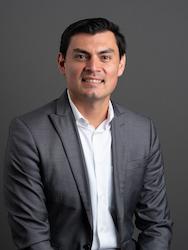
César Escalante, formerly a postdoctoral research fellow at the USDA National Soil Dynamics Lab at Auburn University, has joined the Department of Botany and Plant Pathology as a clinical assistant professor. His academic journey began with a bachelor’s degree in agronomy from the National University of Agriculture in Honduras, where he completed an undergraduate thesis in Mexico that sparked his passion for agricultural research. Escalante continued his studies at Louisiana State University, earning both his master’s and Ph.D. from the Department of Plant Pathology and Crop Physiology. His research expertise encompasses plant pathogens – viruses, fungi and bacteria in vegetables and row crops – and their impact on plant physiology. By integrating classical and modern plant pathology techniques, Escalante provides timely solutions for disease management to growers. In his new role, he will not only continue to offer expert advice over the phone but will also have the opportunity to visit farms and observe crop conditions firsthand. Beyond his research, Escalante enjoys hiking and watching soccer and football.
Christie Shee, clinical assistant professor, Natural Resources and Environmental Science
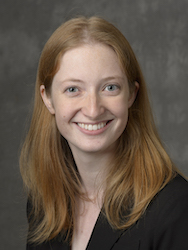
Christie Shee has joined Natural Resources and Environmental Science (NRES) within the Office of Academic Programs, bringing a diverse academic background and wealth of experience. She earned her bachelor’s degree in animal science from Ohio State University, followed by a master’s degree in animal sciences with a specialization in ruminant nutrition and a Ph.D. in entomology with a specialization in plant-insect interactions, both from Purdue University. Her doctoral research focused on exploring how plant volatile organic compounds and insect aggregation pheromones can be harnessed to develop innovative pest management strategies for organic farming. Prior to joining NRES, she worked at the Office of Indiana State Chemist and the John Martinson Honors College. Shee taught interdisciplinary courses that connected environmental sciences with cultural perspectives on habitat and biodiversity loss. With a strong dedication to education, she is excited about mentoring students who are committed to environmental stewardship and making a positive impact on global environmental challenges. In her spare time, Shee likes reading, gardening and spending time with her array of pets, including cats, guinea pigs, fish and arthropods.
Hanyu Chen, clinical assistant professor, Food Science
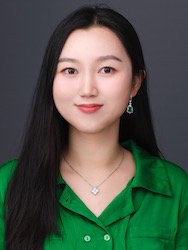
Hanyu Chen has joined the Department of Food Science after earning both her Ph.D. and master’s degrees in food science from Cornell University, with concentrations in food engineering, microbiology and applied economics and management. Prior to her appointment at Purdue University, Chen served as a postdoctoral researcher at Cornell, where her work integrated food safety, engineering and processing to enhance the safety, quality and sustainability of agri-food systems. Her research focuses on novel processing technologies to optimize the agri-food supply chain, efficient value-added processing of agri-food products and waste valorization leveraging cloud computing systems. Chen’s work also emphasizes effective microbial control and microbiome modulation in production environments to ensure food safety and minimize the chemical footprint. With her interdisciplinary expertise and strong commitment to education and collaboration, Chen is eager to help design and develop online food science courses tailored for a diverse audience. Outside of her research, Chen enjoys playing tennis, spending quality time with her family and hiking to appreciate the beauty of nature.
Patrick Ruhl, clinical assistant professor, Forestry and Natural Resources
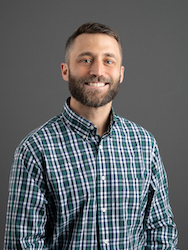
Patrick Ruhl, a new addition to the Department of Forestry and Natural Resources (FNR), holds a bachelor’s degree in biology from Harding University and both a master’s and Ph.D. in wildlife science from Purdue University. His research has examined the role of plethodontid salamanders as bio-indicator in forest ecosystems, particularly the impacts of intensive timber harvesting on eastern red-backed salamanders in Jennings County, Indiana. Additionally, Ruhl has conducted research on bird populations in clearcuts of the Hardwood Ecosystem Experiment – a century-long study assessing the social and ecological impacts of forest management in Morgan-Monroe and Yellowwood State Forests – to understand how mature forest birds interact with early successional habitat during the post-fledging period. Before joining Purdue, Ruhl was an assistant professor in the biology department at Harding University, where he taught biostatistics, herpetology, ornithology, environmental science and ecology lab, as well as monitored undergraduates in research projects focused on habitat use and foraging strategies of birds. With six years of valuable teaching experiences, Ruhl is excited to support and guide FNR students as they prepare for careers in wildlife, forestry and aquatic sciences. Beyond his professional pursuits, Ruhl enjoys introducing his sons to the outdoors and participating in birding and ecotourism trips with his family to explore native flora and fauna around the world.
Peter Euclide, assistant professor, Forestry and Natural Resources
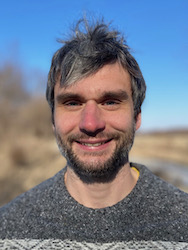
Peter Euclide has been appointed assistant professor in the Department of Forestry and Natural Resources (FNR). He joined Purdue University in 2021 as a collaborative researcher between the biology department and FNR, and in 2022, became a senior aquatic ecology research scientist. In this role, Euclide used a combination of modern genomic and ecological methods to study animal movement, local adaptation and evolution, contributing valuable insights for management and conservation efforts. He also served as a fisheries specialist for the Illinois-Indiana Sea Grant. Euclide holds an undergraduate degree in organismal biology from Kent State University, an M.S. from the Rubenstein School of Environment and Natural Resources and a Ph.D. in biology from the University of Vermont. Prior to joining Purdue, he conducted postdoctoral research at the University of Wisconsin-Stevens Point and the University of Wisconsin-Milwaukee, where he focused on fish and mammal population genomics and managed a collaborative Great Lakes-wide walleye research program. His research, which has resulted in over 20 publications, centers on the population ecology, genetics and local adaptation of Great Lake fish species. In addition to his research, Euclide reviews manuscripts for several publications, such as the Journal of Great Lakes Research, the Canadian Journal of Fisheries and Aquatic Science and the North American Journal of Fisheries Management. Continuing his tenure at Purdue, Euclide looks forward to advancing his research in an independent lab focused on understanding how fish populations are evolving in response to human activity. Beyond his research, Euclide enjoys bike riding, kayaking, gardening and hiking.
Petrus Langenhoven, clinical assistant professor, Horticulture and Landscape Architecture
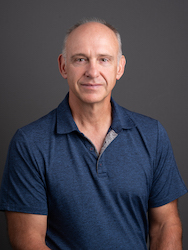
Petrus Langenhoven, formerly a horticulture and hydroponics crop Extension specialist at Purdue University, has been appointed clinical assistant professor within the Department of Horticulture and Landscape Architecture. In his Extension role, Langenhoven contributed to 11 funded research projects focused on soil health and holistic crop management. He currently serves as a liaison to the Indiana Mint Market Development and Research Council and directs the Purdue Student Farm. After attending Boland Agricultural High School in South Africa, Langenhoven earned his bachelor’s degree in agronomy and entomology, followed by a master’s and Ph.D. in agronomy from Stellenbosch University. With 16 years of experience in horticulture development, he worked at the Agricultural Research Council in South Africa and the NGO Agribusiness in Sustainable Natural African Plant Products. Notably, he served as Country Director in Zambia and Chief of Party for a USAID-funded project designed to increase smallholder horticulture incomes. His expertise spans developing local food systems, supporting commercial vegetable growers and advancing organic plant product industries through supply chain analysis and market development. Langenhoven’s current research focuses on cover cropping and using plant and animal-based compost to improve soil fertility. Dedicated to enhancing soil nutrient management and farm profitability, he seeks to create climate-smart solutions that boost crop yields and minimize reliance on conventional fertilizers. In his free time, Langenhoven likes gardening, woodworking and watching rugby, basketball and soccer.
Thomas Butts, clinical assistant professor and Extension weed specialist, Botany and Plant Pathology
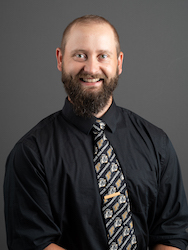
Thomas Butts has joined the Department of Botany and Plant Pathology as a clinical assistant professor and Extension weed specialist. In his role, Butts will focus on innovative weed management strategies using cutting-edge technologies like robotics, drones and lasers in addition to utilizing herbicide applications. This fall, Butts will also co-teach a graduate-level course on advanced weed biology and ecology and will develop a future course detailing technology use for weed management. Butts earned his bachelor’s degree from the University of Wisconsin, Platteville, with a major in agricultural business and minor in soil and crop science. He continued his education with a master’s in agronomy and weed science from the University of Wisconsin, Madison, where he focused on Amaranthus spp. (pigweed) management, followed by a Ph.D. from the University of Nebraska, Lincoln, specializing in application technologies. Following postdoctoral research on soybean agronomy at Wisconsin, Butts served as an associate professor and Extension weed scientist at the University of Arkansas, concentrating on rice and soybean weed management. At Purdue University, Butts is dedicated to developing novel equipment and strategies for weed identification and management, especially in response to rising herbicide resistance. While his research is technology-driven, Butts is committed to translating these innovations into practical solutions that benefit farmers and their operations. Joining faculty, he is excited to expand his expertise across field and horticultural crops while supporting both organic and conventional growers. Outside of his professional life, Butts enjoys hiking and exploring parks with his family and is a passionate sports enthusiast.
Trey Malone, Boehlje Chair in Managerial Economics for Agribusiness, Agricultural Economics
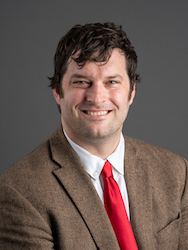
Trey Malone, formerly an associate professor in the Department of Agricultural Economics and Agribusiness at the University of Arkansas, has been appointed to the Boehlje Chair in Managerial Economics for Agribusiness in the Department of Agricultural Economics. During his time in Arkansas, Malone gained valuable insights into the dynamics of the agri-food supply chain, deepening his understanding of the complex agribusiness management necessary for U.S. food production. Before this role, Malone served as an assistant professor at Michigan State University, specializing in agricultural marketing strategy, where he explored various agri-food supply chains, including dairy, corn, soybeans and specialty crops. Holding graduate degrees in agricultural economics from Oklahoma State University, his research focuses on the impact of consumer behavior changes on agricultural marketing strategies, the economic effects of public policies on agri-food systems and sustainability and resource management in agriculture. Over his career, Malone has published 63 peer-reviewed journal articles that received over a dozen awards. As the Boehlje Chair, Malone is excited to leverage Purdue University’s extensive resources and collaborative environment to advance research and education in agribusiness, continuing the tradition of impactful agricultural economics. Outside of work, Malone is a passionate sports fan and enjoys outdoor activities such as downhill skiing and hiking.






